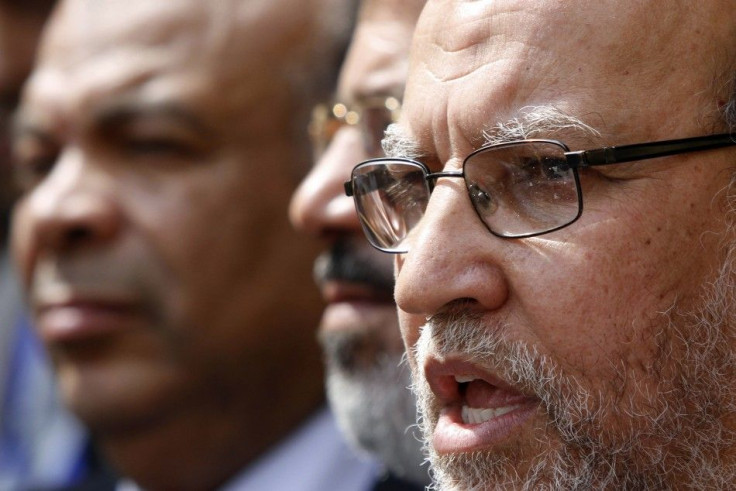Egypt-Israel Peace Treaty Threatened In Aid Dispute

American threats to suspend aid to the Egyptian government could endanger Egypt's 1979 peace treaty with Israel, the most powerful party in Egypt's newly elected parliament warned on Thursday.
Egypt and the United States are embroiled in an intensifying dispute over the Egyptian government's decision to press criminal charges against American-backed democracy-building nonprofits operating in Egypt.
Egyptian authorities contend that the groups are violating laws regulating foreign financing for such groups, but American officials see a campaign of intimidation intended to suppress democracy.
The United States has channeled billions of dollars in aid to the Egyptian government since the 1979 peace treaty between Egypt and Israel, an accord that has been seen as both a foundation for regional stability and a centerpiece of America's Middle East strategy. But that could be about to change.
Egypt has remained defiant in the face of American pressure, leading to increasingly vocal calls from lawmakers to rescind the $1.55 billion in aid Congress had allocated for 2012.
The Muslim Brotherhood, an Islamist organization that was outlawed by former president Hosni Mubarak and has gone on to won a plurality of seats in the new Parliament, said a decision to cut off the aid would lead Egypt to review its treaty with Israel.
We [Egypt[ are a party [to the treaty] and we will be harmed so it is our right to review the matter, Essam el-Erian, a senior Brotherhood leader, told Reuters in a telephone interview. The aid was one of the commitments of the parties that signed the peace agreement so if there is a breach from one side it gives the right of review to the parties.
The Muslim Brotherhood has struck a precarious balance between opposing the ruling military regime and finding space for compromise, and the two parties appear to have found common ground in the current conflict. Earlier this week, the Brotherhood denounced any officials willing to succumb to pressure and halt the trials.
Egypt's peace treaty with Israel has long been viewed as indispensable, but that could be changing as the Arab Spring upends the dynamics of Middle Eastern politics.
Steve McInerney, executive director of the Project on Middle East Democracy, said that rising wariness about the shape of Egypt's new government has diminished instinctive defense of Egypt.
I don't think supporters of Israel are clamoring for aid to be cut but I think they'll be less resistant than in the past, McInerney said, adding that Congress and the Obama administration were taking the possibility very, very seriously.
For many critics, the investigation of the NGO's is yet another indication of the Egyptian government's backslide into repressive, autocratic rule. The ruling military council has violently attacked protesters, renewed trials of political dissidents and reinstituted aspects of an emergency law that was for many a reviled symbol of the Mubarak era.
Hostility to democracy and human rights is why the Mubarak regime restricted the operations of these NGO's and refused to process their applications for registration. It is the same totalitarian mindset that is driving the current Egyptian government to carry out this crackdown, Rep. Ileana Ros-Lehtinen (R-FL), chairwoman of the House Foreign Affairs Committee, said during a hearing on Thursday.
If the United States continues to provide assistance to Egypt even as our own citizens are persecuted and our taxpayer dollars are unjustly seized, Ros-Lehtinen added, then we will be sending a number of unacceptable messages.
© Copyright IBTimes 2025. All rights reserved.




















